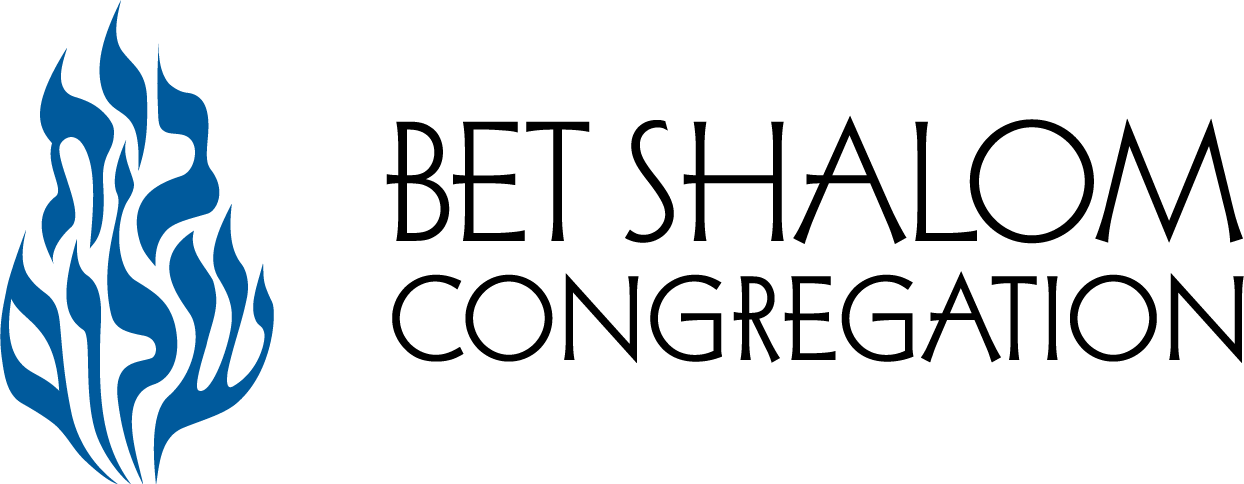Ruth’s Group: A Gathering of Jews by Choice
by Maura Lerner Fisher
Years ago, when she first converted to Judaism, Renee Schwach and her husband, Marc, rarely mentioned that fact to other members of their synagogue.
At the time, she recalls, “you were not supposed to ask (someone) if they converted. You were not supposed to say anything.”
Renee and Marc Schwach
Now, though, she’s more than happy to share her story as one of the founding members of Ruth’s Group, a new Bet Shalom social group for adults in the congregation who became Jews by choice rather than birth.
So far, the group (which is named after the biblical Ruth, who converted to Judaism), has no formal agenda — it’s been holding informal get-togethers about once a month since early this year, including a Sukkot potluck with their families in mid-October.
Yet Rabbi David Locketz, who helped launch the group, believes it can fill an important role by embracing a growing segment of the congregation.
By his estimate, “at least half” the families at Bet Shalom include Jewish converts or intermarried couples. Many members who converted, he notes, have faced the same challenges — around holidays, traditions, raising Jewish children — and could benefit from sharing their experiences, especially with newcomers.
“Which is why this is so powerful,” said Rabbi Locketz. “You have people of different generations, different age groups, who have already struggled with all these questions.
The question, until now, was how to find each other.
“It’s just really nice to be able to connect with people and hear their stories,” said Sarah Norsted, who converted to Judaism as a bride-to-be 31 years ago, and joined Ruth’s Group last spring. “I don’t have a lot of friends who converted, even though I’ve been around a long time and converted a long time ago.”
Naomi Dean and Elsie Roberts
When they shared their stories for the first time, Naomi Dean, another founding member, said she was struck by how much they had in common across the generations.
“It was so interesting to see there were certain themes,” said Naomi, who converted 15 years ago. Many had long felt alienated from their original religion, she said. “It just didn’t work out for various reasons. It didn’t fit. And we were glad to have found Judaism in whatever way we did.”
Renee Schwach, who grew up in a Lutheran family in Middleton, Wisconsin, couldn’t agree more.
“The usual perception seems to be that a lot of people convert because of marriage, but that isn’t what I have found in talking to a lot of them,” she said. “A lot of them were searchers.”
And she can identify with that. “When I started in Sunday school, I kept having a lot of questions,” she said. “By 13 or 14, I started visiting other people's churches.” By the time she met her future husband — Marc Schwach, a Jewish New Yorker and fellow student at the University of Wisconsin — Renee had started going to Hillel by herself. When a friend gave her a book about Judaism, she said, “everything in my brain clicked: Yeah, this is everything I’ve been thinking.”
Among the members of Ruth’s Group, that sentiment was widespread, said Lauren Witebsky, who agreed to serve as its leader.
“I think the common theme that I hear a lot is people grew up in one religion or another but always asked a lot of questions,” she said, “and finally came upon a religion where questions were welcome.”
Lauren, Scott, Phoebe and Bohdi Witebsky
In her case, she said, the urge to convert took a bit of time — and even caught her by surprise. Lauren, who was raised Catholic, said she and her husband, Scott, decided right away that they would raise their children Jewish. But she didn’t feel the need to convert — she considered herself agnostic — until the day their young son, Bodhi, came home from religious school at Bet Shalom, reciting a prayer.
“I had no idea what he was saying,” she recalled. “I felt very left out. I felt this was my signal. I remember… having that thought: Maybe I do need to convert and feel like this is something our entire family is involved in.” She celebrated her conversion two years ago.
For now, Lauren says members of the group are exploring ways they might ease the path for new converts, such as Jewish cooking classes, mentoring and holiday-dinner matching programs, to help connect them to Jewish families during the holidays.
But the main goal is simply nurturing connections at Bet Shalom. “I think that the congregation as a whole — there’s a welcoming spirit to it,” said Lauren. “It is just a community that welcomes people of all backgrounds and beliefs and identities, and tries to celebrate Judaism together.”





